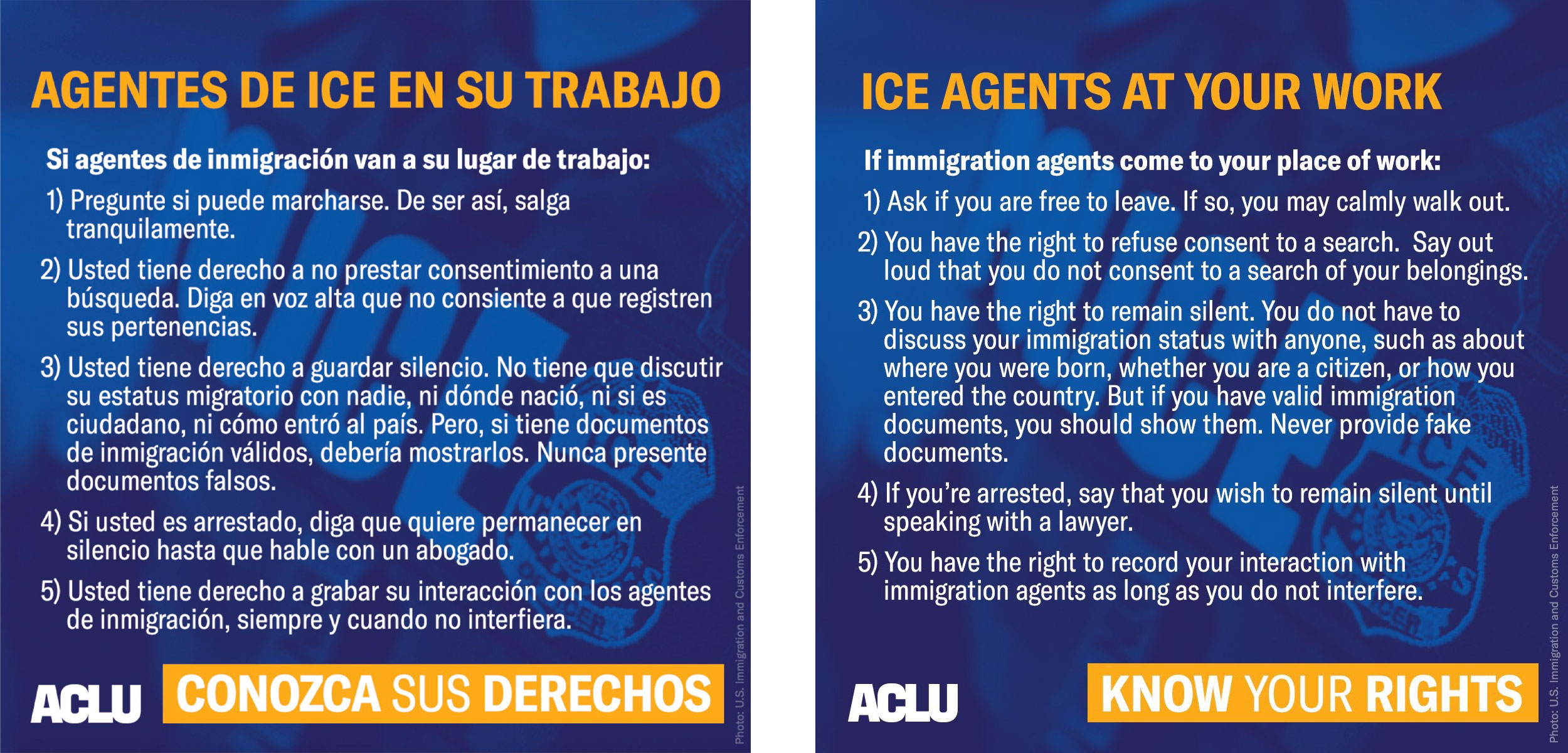Fears of federal immigration raids and mass deportations have left the country on edge. First there were rumors locally and nationwide that Immigration and Customs Enforcement (ICE) raids would occur. Then the largest ICE raid of the decade took place Aug. 7.
More than 680 individuals were arrested at food processing plants in Mississippi, separating families and children. More than 300 of the individuals arrested were released on the same day; however, many are still being detained in an ICE facility in Louisiana.
For weeks before the raid, Lane County residents were posting purported ICE raids on social media. No raid manifested here, but many residents were alarmed.
In light of these recent events, it becomes even more pressing for people to know what they can do to help and for people to understand their rights as an individual.
Many scenarios can unfold when coming face to face with an ICE official. However, it’s important for undocumented immigrants to understand they have rights that can protect them.
According to the Oregon chapter of the American Civil Liberties Union, if an ICE employee shows up at the home of an undocumented immigrant, you do not have to open the door unless the official has a valid search warrant.
An ICE warrant of removal or deportation (Form I-205) does not allow officers to enter a home without consent. This type of warrant is not the same as a search warrant. Instead, a valid search warrant must be signed by an official judge, the ACLU says.
If the warrant does not have the correct name and address and it is not signed by a judge you do not have to open the door and let any ICE officials inside.
Additionally, undocumented immigrants, if stopped by ICE or if ICE comes to their home, have the right to remain silent and the right to a lawyer — if it happens that an undocumented immigrant or immigrant is arrested.
Karla Schmidt Murillo, immigration advocate for Centro Latino Americano, says families can take steps to be prepared if an encounter with ICE occurs.
At Centro Latino Americano, a nonprofit organization in Lane County, representatives are available to meet by appointment with families to build their own “family prepared packet.” Free of charge, the packet is a binder of critical documents and items such as car insurances, passports, birth certificates, phone numbers and spare keys, all in one place for easy access and safe keeping.
Centro Latino Americano provides the binder, free scanning and plastic sheets for the documents to be stored in.
Additionally, families should have the phone number of at least one immigration attorney in their binder, Murillo says, and Centro can provide access to a list of trusted and respected attorneys.
Murillo says Centro hears of many attorneys that take advantage of vulnerable individuals seeking help. “There is a lot of fraud out in the community,” she says.
It’s not uncommon to hear an individual paying $500 for the help from an attorney, only to never hear from the attorney nor receive the services they were looking for, Murillo says.
Rumors of ICE sightings can spread rapidly on social media, with individuals reposting onto their own accounts. For non-immigrants or immigrants who want to help, Murillo discourages individuals from jumping to repost ICE rumors on social media, as that can cause massive chaos and unnecessary fear.
Instead, if someone does see a social media post that ICE is in the area, Murillo advises individuals to call the phone number of Grupo Latino de Acción Directa (GLAD) of Lane County (541-505-7953), a local grassroots organization.
GLAD can investigate and find more information about the situation to see if the rumors are true, reducing the amount of false information spread on social media.
Additionally, individuals who would like to support or be able to take direct action to support the Latinx community in Lane County can consider donating to organizations that aid and provide support services for the community.
These nonprofits and organization include Centro Latino Americano, Huerto de la Familia, Downtown Languages and Catholic Community Services and their Immigration Legal Services program.
Find more information in Spanish and English at centro-latinoamericano.org and aclu-or.org.


